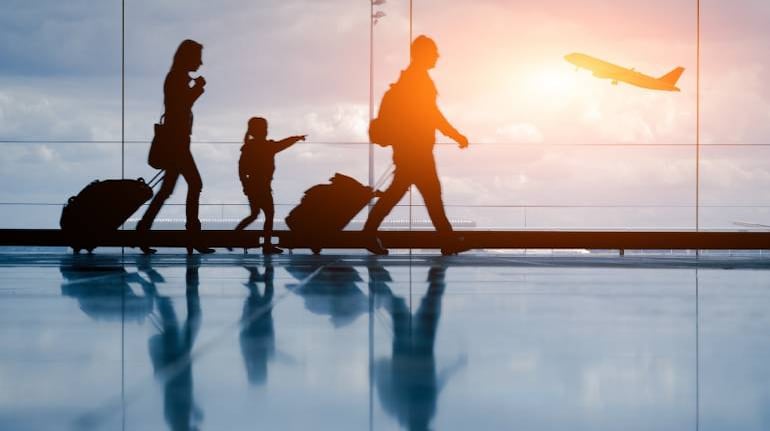



On Sunday, November 7, the country saw 378,992 passengers fly. This came on the back of 2,701 departures that day.
The passenger numbers and flight deployment were the highest since the resumption of flights following the Covid-19 outbreak and came as the long tail of the second wave tapered and the vaccination drive covered more people across the country.
The higher number of flyers meant that more seats were occupied on flights than before, with the load factor for SpiceJet and Air India crossing 90 percent on November 7.
The recovery now stands at 84.33 percent for flights when mapped against the approved winter schedule and 89.14 percent on passenger count when mapped against the pre-Covid numbers.
The good part about these numbers is that they are not a one-off wonder. There were 2.09 million domestic air passengers in the first seven days of November. That was the highest since the first seven days of March this year, when 1.81 million passengers took to the air.
Advantage airports?
While the government had doled out indirect benefits to the airline sector in the wake of Covid-19, airports did not get any benefits. Now, they stand to get a bonanza. Both Mumbai and New Delhi airports are operating all their terminals, while at other airports across the country, congestion is being reported at peak times.
With the return of passengers, airports stand to gain on two fronts. Increased traffic leads to more flights and revenue in terms of passenger service fee, landing and other charges from airlines.
The other and fairly important benefit is non-aero revenue. Stores at airports are open again and the food courts are buzzing again. With in-flight meals still restricted, passengers tend to fill themselves up before a flight or order takeaways. Airports get a share of the revenue from retail sales, including food and beverages, and increased footfalls add up to an airport’s revenue.
Airlines benefit
With passenger numbers at an all-time high since flights resumed in May last year, airlines are seeing fuller aircraft. Unfortunately, with the restrictions on in-flight meals, they cannot avail of the full potential of ancillary revenue. Yet, the lower bracket for fares means that airlines are selling more seats at fares that were earlier hard to command!
This led to IndiGo improving its RASK (revenue per available seat-km), although total revenue from operations remains lower than before.
With three airlines looking to raise as much as Rs 4,000 crore in the short to medium term, the current spurt in traffic will instil some confidence among investors.
Air fares
Indian aviation has been characterised by a floor price and a ceiling for air fares since May 2020. Over the past few months, the regulations have evolved and there has been some discipline and predictability.
While earlier the caps were announced with an end date, this was subsequently changed to a rolling 30-day period, which was further trimmed to a rolling 15-day period.
Airlines have to adhere to the fare caps for the next 15 days, beyond which they are free to price their tickets at will. However, airlines have been holding on to the fare levels for up to 30 days.
The decision not to drop fares for 30 days from departure is a good revenue management practice, which was seldom followed in India. This helps airlines and passengers get into a discipline for booking as well as fare management, with fares going up closer to departure day.
In the past, deep discounting at the last minute to shore up the load factor and garner cash had led to passengers feeling cheated for booking their tickets in advance as well as airlines not meeting their own revenue goals.
With aviation turbine fuel at a high, the current fare bands will help airlines sustain over the worst times and the return of passenger growth will go down well on the revenue side.
Yet, there remains a gap between what an airline’s earnings and its spending. While airlines sustained the two waves of Covid, one doesn’t know if there will be a third wave.
In the absence of another wave, business travel looks set to resume in the next few months. If Covid cases don’t rise after Diwali, it will instil further confidence among passengers to travel for Christmas and the New Year.
Discover the latest Business News, Sensex, and Nifty updates. Obtain Personal Finance insights, tax queries, and expert opinions on Moneycontrol or download the Moneycontrol App to stay updated!
Find the best of Al News in one place, specially curated for you every weekend.
Stay on top of the latest tech trends and biggest startup news.